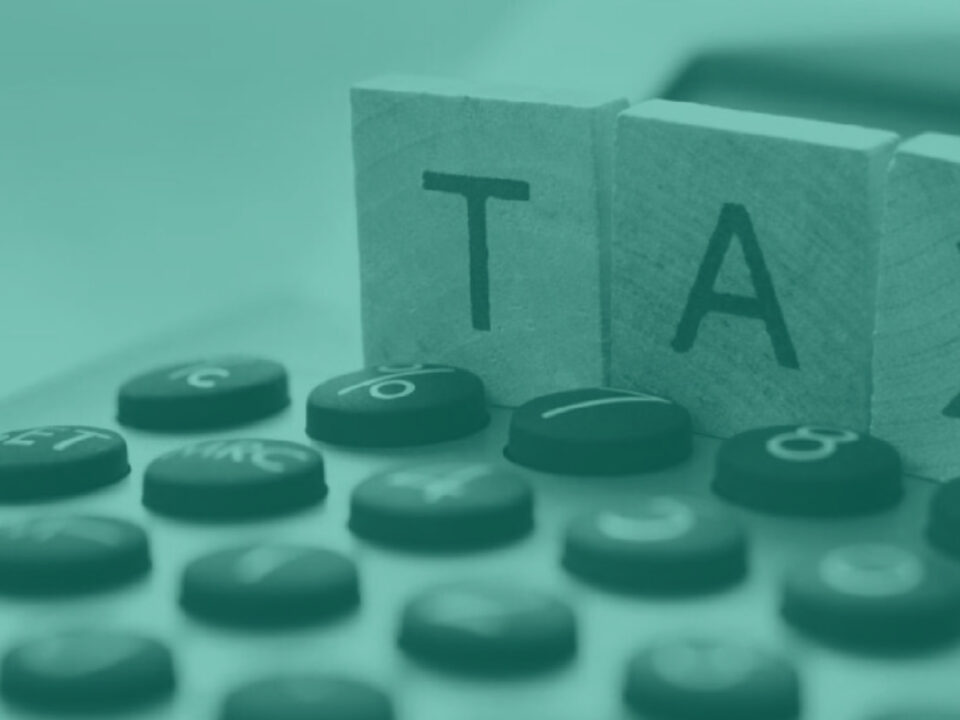In terms of the business environment, the UAE has a highly developed legal framework that supports foreign investment and trade. This includes laws and regulations related to intellectual property, commercial transactions, banking and finance, and foreign investment. Some ways the UAE laws affect businesses are:
- Regulatory Framework: The UAE has a well-developed legal system that establishes the framework for business activities, including registration, licenses and permits, taxation, employment laws, and intellectual property rights.
- Protecting Investments: The UAE laws provide protection for business investments and ensure that contracts and agreements are enforceable, which helps create a stable and predictable business environment.
- Compliance: The UAE businesses must comply with all relevant laws and regulations, including health and safety regulations, labour laws, and environmental regulations, to avoid legal and financial penalties.
- Intellectual Property: The UAE has strong intellectual property laws that protect the rights of businesses, including trademarks, patents, and copyrights.
- Labour Laws: The UAE has comprehensive labour laws that govern employment relations and protect the rights of employees, including minimum wage laws, working hours, and safety regulations.
- Taxation: The UAE has a tax-friendly environment, with low corporate tax rates, but businesses must still comply with all applicable tax laws and regulations.
UAE CORPORATE TAX
The Corporate Tax legislation by the UAE Ministry of Finance (MOF) was released on 9 December 2022. The Federal Decree-Law No. 47 of 2022, effective from 1 June 2023, indicates a 9% tax rate to taxable profits exceeding AED 375,000.
This practice is built around international best practice and is designed to reinforce the UAE’s position as a global center for business and investment.
Corporate tax in the UAE shall be imposed on the taxable income at the following rates:
- 0% on the portion of the taxable income not exceeding the threshold amount (AED 375,000).
- 9% on taxable income that exceeds the threshold amount (AED 375,000).
UAE PATENT LAW
UAE has a federal patent law that governs the protection of inventions and industrial designs in the country. The patent law is governed by Federal Law No.31 of 2006, which is known as the UAE Patent Law.
The law provides for the grant of a patent to any person who has invented a new and useful product or process that is not obvious to others having ordinary skill in the field. A patent in the UAE provides its owner with the exclusive right to prevent others from exploiting the patented invention for a period of 20 years from the date of filing.
THE COMMERCIAL COMPANIES LAW
Federal Law No. 11 of 2021, also known as the “UAE Commercial Companies Law,” is a new piece of legislation in the UAE that governs the formation, management, and dissolution of commercial companies in the country. The law replaces Federal Law No. 2 of 2015 and introduces a number of significant changes, including:
- The ability for companies to have a single shareholder.
- The elimination of restrictions on foreign ownership in certain sectors.
- New provisions regarding corporate governance, management, and financial reporting for companies operating in the UAE.
The law came into effect on 1 January 2022 and applies to all commercial companies operating in the UAE.
DATA PROTECTION LAW
The UAE has enacted several laws and regulations related to data protection, including:
- Federal Decree-Law No. 45 of 2021 on Combating Cybercrime, which sets penalties for cybercrimes, including unauthorized access to, or use of, personal data.
- The Information Security Regulations of Dubai, which prescribe security measures for the protection of personal data in Dubai.
- The Cybersecurity Regulations of Abu Dhabi, which prescribe security measures for the protection of critical national information infrastructure and personal data in Abu Dhabi.
- The Personal Data Protection Regulation (PDPR) 2021, which was issued by the Telecommunications Regulatory Authority (TRA) in 2021, sets out the requirements for the collection, storage, and use of personal data in the UAE.
The Personal Data Protection Regulation 2021 applies to public and private organisations in the UAE and requires them to implement appropriate technical and organisational measures to ensure the security of personal data. Organisations must also appoint a data protection officer and provide training to their employees on data protection.
In summary, the UAE has several laws and regulations in place to protect personal data and ensure the privacy of individuals. Organisations are required to implement appropriate measures to secure personal data, and failure to comply with the relevant laws and regulations can result in penalties and fines.
LABOUR LAW
UAE Federal Law No. (8) of 1980, as amended, governs the labour laws in the UAE. In recent years, several amendments have been made to the Labour law, including:
- Ministerial Decree No. (633) of 2018, which introduced new provisions for the protection of foreign workers, such as restrictions on employers’ ability to confiscate workers’ passports and enhanced penalties for labour violations.
- Ministerial Decree No. (998) of 2020, which introduced new rules for remote work and extended the annual leave entitlements for private sector employees.
- Ministerial Decree No. (1175) of 2020, which introduced new provisions for the termination of employment contracts, including compensation for unjustified termination and the right to appeal.
- Ministerial Decree No. (1258) of 2020, which introduced new provisions for the regulation of domestic workers, including a minimum wage and standard working hours.
- Ministerial Decision No. (90) of 2020, which introduced a new system for the resolution of labour disputes through the Federal Authority for Dispute Resolution.
- Federal decree Law No. (33) of 2021, which introduced new fixed term employment contracts of not more than 2 years. Employers have until the end of 2023 to adopt new contracts. The new law accepts part-time, temporary, and flexible working hours for the employees.
These amendments aim to improve the rights and protections of workers in the UAE, and to provide a more effective and efficient system for resolving labour disputes. Organisations operating in the UAE are required to comply with the labour law and related regulations, and failure to do so can result in penalties and fines.
MANDATORY UNEMPLOYMENT INSURANCE SCHEME
According to the Federal Decree Law No. 13 of 2022 (the “Federal Law”) and the Cabinet Decision No. 97 of 2022, all employees in the Federal Government and private sector are required to register to a mandatory unemployment insurance scheme prior to June 2023. The categories are:
Employees having a basic salary of less than AED 16,000 must contribute a minimum of AED 5 + VAT per month to their selected scheme. This includes a Maximum Claim Benefit of 10,000 AED per month.
Employees having a basic salary of more than AED 16,000 must contribute a minimum of AED 10 + VAT per month to their selected scheme. This includes a Maximum Claim Benefit of 20,000 AED per month.
Failing to register before the deadline will result in a penalty of AED 400. Freezone employees & a few other categories are exempt from this scheme.
EMIRATISATION FOR PRIVATE SECTOR
The rules governing Emiratisation law are the Cabinet Decision No. 18 of 2022, Ministerial Decision No. 279 of 2022 and other rules under the Nafis Scheme. The law came into effect on 1 January 2023. The following are the key features of the law update:
- For private sector companies with more than 50 employees, 2% of the work force must be UAE nationals.
- All private sector companies that reach the Emiratisation target within their work force will receive government benefits and discounts e.g., with the Ministry of Human Resources and Emiratisation (MoHRE).
- A fine of AED 6,000 monthly will be imposed on those companies who fail to meet the Emiratisation rules.
VIRTUAL ASSETS
The UAE has enacted several laws and regulations related to virtual assets, including:
- Central Bank of the UAE Regulation No. (3) of 2020 on Stored Values and Electronic Payment Systems, which sets out the framework for the regulation of virtual assets and digital currencies in the UAE.
- Dubai International Financial Centre (DIFC) Law No. 5 of 2020 on Anti-Money Laundering and Counter Financing of Terrorism, which sets out the requirements for virtual asset service providers in the DIFC.
- Abu Dhabi Global Market (ADGM) Regulation No. (1) of 2020 on Digital Currencies, which sets out the requirements for virtual asset service providers in the ADGM.
These laws and regulations aim to promote the safe and secure use of virtual assets, while also ensuring compliance with anti-money laundering and counter-financing of terrorism regulations. Organisations involved in virtual asset activities in the UAE are required to comply with these laws and regulations, and failure to do so can result in penalties and fines.
In summary, the UAE has a comprehensive legal framework for the regulation of virtual assets, including digital currencies. This framework seeks to promote the safe and secure use of virtual assets, while also ensuring compliance with anti-money laundering and counter-financing of terrorism regulations.
ECONOMIC SUBSTANCE LAW (ESR) – (No Longer in Effect)
The UAE has enacted the Economic Substance Regulations (ESR), which became effective on 30 April 2019 as per the Cabinet of Ministers Resolution No 31 of 2019. The updated Guidance was issued on 19 August 2020 (Ministerial Decision No. 100 of 2020). The ESR in the UAE requires entities to conduct certain regulated activities to demonstrate adequate economic substance in the UAE in relation to the activities they carry out.
The regulated activities include:
- Banking
- Insurance
- Investment Fund Management
- Lease Finance
- Headquarters
- Shipping
- Holding Companies
- Intellectual Property
- Distribution and Service Centers
The purpose of the ESR is to ensure that entities carrying out these regulated activities in the UAE have a sufficient level of economic substance in the country and are not conducting only “letterbox” operations.
Entities are required to submit an annual notification to the UAE authorities and a substantive economic substance test annually to demonstrate that they meet the requirements of the ESR. The substance test includes:
- Evaluating the level of relevant activities.
- The use of local employees and physical office space.
- The expenses incurred in the UAE.
In summary, the UAE ESR require entities conducting certain regulated activities in the country to demonstrate adequate Economic Substance in the UAE. Entities must meet the substance requirements and submit an annual notification and substantive Economic Substance test to the UAE authorities.
WHAT TO DO NEXT
If you are looking to understand the impact of new laws in the UAE on your business, there are several steps you can take:
- Review the text of the law: The text of new laws can be found on the official websites of the UAE government, such as the Federal National Council or the respective Emirate’s government.
- Seek professional advice: If you have specific questions about the interpretation or application of a new law to your UAE business, it may be advisable to seek professional advice from consultants or experts.
- Review relevant regulations: New laws are often accompanied by regulations that provide further detail on their implementation. It is important to review these regulations to understand their full impact.
- Stay informed: It is important to stay informed of any new laws and amendments to existing laws in the UAE. You can do this by subscribing to legal news and updates, or by regularly checking relevant websites and forums.
- Comply with the law: Once you have a clear understanding of the new law and its requirements, it is important to comply with it. Failure to do so can result in penalties and fines.
Creation Business Consultants will keep you informed about the latest regulations which could impact your business. Our team of corporate structuring and tax experts will leverage our experience to help understand the latest changes while simultaneously providing you with all the details needed to run your company in Dubai. Contact our Corporate Structuring or Tax department to learn more about setting up a company in the UAE and Saudi Arabia, email us at [email protected] or call UAE +971 4 878 6240 Saudi Arabia +966 54 511 2494







